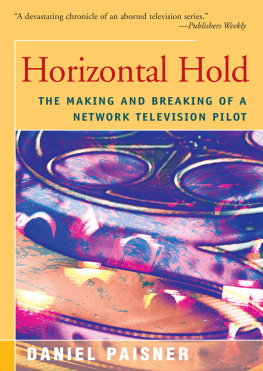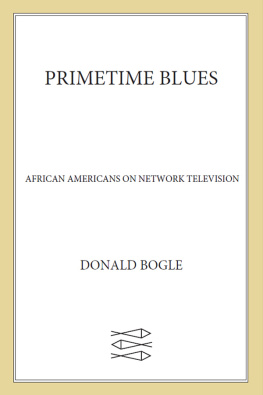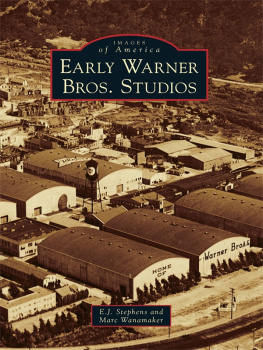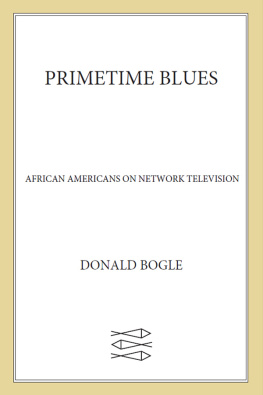For Tom and Daisy. Zygone.
The authors would like to thank everyone who gave of their time, their scrapbooks and their insights to help us document this dynamic chapter in broadcasting history. The research for this book began on the morning of the WB-UPN merger announcement, January 24, 2006, and involved more than 70 interviews with executives, producers, writers, actors, agents, TV station owners, publicists, and fans of the shows that defined the networks.
Special thanks is owed to those who took the time to help us get it right: J. J. Abrams, Ed Adler, Garth Ancier, Barry Baker, Gail Berman, Bob Bibb, Kevin Brockman, Barbara Brogliatti, Bob Daly, Jonathan Dolgen, Chris Ender, Dennis FitzSimons, Lee Gabler, Steve Goldman, Lew Goldstein, Marna Grantham, Len Grossi, Sandy Grushow, Chris Harbert, David Janollari, Jamie Kellner, Kathleen Letterie, Jordan Levin, Kerry McCluggage, Paul McGuire, Linda McMahon, Barry Meyer, Rusty Mintz, Bonnie Moffet, Leslie Moonves, Gary Newman, Tom Nunan, Dawn Ostroff, Jed Petrick, Hal Protter, Peter Roth, Bruce Rosenblum, Scott Rowe, Lucie Salhany, Amy Sherman-Palladino, Michael Sullivan, Kevin Tannehill, Sarah Timberman, Brad Turell, Dean Valentine, Dana Walden, John Wentworth, Kevin Williamson, and Jim Yeager.
Our deepest gratitude is extended to our editors at HarperCollins, Matt Harper and Cal Morgan, and to Judith Regan for believing that there was a good story to be told in this tale of two networks. Our lawyer, Erik Brown, was also unwavering in his support and scrutiny of our contracts fine print.
For Susanne Daniels, the first person to get thanked is Cynthia Littleton. Her dedication to pursuing this story and her talent in telling it means the world to me.
An extra special thanks goes to Jamie Kellner and Garth Ancier. You are televisionaries, and I am honored to have worked for you. Thank you to Lorne Michaels, Christina McGinniss, and Eric Ellenbogen for starting my career at Saturday Night Live and Broadway Video. Thank you Ted Harbert, Gary Levine, and John Hamlin for introducing me to network television at ABC, and thank you to Peter Chernin and Tom Nunan for including me at Fox during a fascinating time in its history.
The biggest thank you of all goes to my incredible family. Haley, Owen, and Charlotte, thank you for always being happy to see me when I get home from work. You all make me unbelievably proud. Judy and Stan Lieberstein (aka Mom and Dad) thank you for your over-abundance of insight, love, and support. You convinced me that I could do anything; having amazing parents is my secret weapon. Paul, Warren, and Angela, there would be no sanity breaks without your precious gifts of time. Judy, Aaron, and Alex, your enthusiasm and optimism help keep me going. And Greg, thank you for listening, endlessly. Thank you for knowing when to make fun and when to let me cry. You write brilliant comedy, but youve given me the greatest love story of all.
For Cynthia Littleton, this book would not have been possible without the love, support, and eternal patience of my husband, Tom Troccoli, and our beautiful daughter, Daisy. My parents, Scott and Mary Ann Littleton, started it all by instilling in me and my sister Leslie a genuine love of reading and writing long before we reached kindergarten.
On a professional level, heartfelt thanks are owed to Howard Burns, Robert J. Dowling, and Nellie Andreeva for allowing me the time and space to report and write these pages. Others who helped make my life easier while working on this book include Boss Linda Kaufman, Karl Gibson, Darlene Basch, Kathy Brandon, Emma Brandon, Jean Desmond, Christine Cathern, Ray Richmond, Claire Hambrick, Peter Bart, Michael Speier, and Kathy Lyford.
Special thanks to Susanne Daniels for casting me as your coauthor in this most ambitious development project.
Finally, I owe a debt of gratitude to Valerie Kuklenski, for teaching a green UPI stringer how to be a good reporter.
J. J. Abrams The film and TV producer whose drama Felicity helped make the WB a critical darling.
Garth Ancier The WBs entertainment president from 1994 to 1998; Ancier had filled the same role for Jamie Kellner a decade earlier at Fox.
Bob Bibb and Lewis Goldstein The revered heads of marketing for the WB whose evocative and innovative advertising and promotional campaigns were a crucial factor in the networks success.
Bob Daly The long-serving cochairman and CEO of Warner
Bros. who saw that the studio needed its own broadcast network for its TV production operations to survive.
Susanne Daniels A fledgling number of the WBs creative team, Daniels was a Fox recruit who headed the WBs program development before succeeding Ancier as the networks entertainment president.
Jonathan Dolgen The chairman and CEO of Viacom Entertainment and Kerry McCluggages boss.
Dennis FitzSimons The seasoned station operator and Tribune Broadcasting head who pushed the Chicago-based media conglomerate to align its stations with the WB.
Brenda Hampton The comedy writer tapped to oversee what would become the WBs longest-running series, family drama 7th Heaven .
Jamie Kellner Founder, chairman, and CEO of the WB Network. A linchpin of the team that launched Fox in the 1980s, Kellner saw an opening for a fifth network and was driven to prove he could do it again with the WB.
Jordan Levin The right-hand man to Ancier and Daniels whose youthful sensibilities greatly informed the WBs most successful shows. Levin would rise to succeed Daniels as head of programming and serve briefly as the WBs CEO.
John Maatta The WBs first employee, a lawyer and business strategist who helped establish the networks infrastructure and remained with the WB through its last night on the air.
Kerry McCluggage Paramounts top-ranking television executive from 1991 to 2001 who pushed the studio to launch UPN and played a critical role during the networks formative years.
Barry Meyer Dalys veteran lieutenant and ultimate successor at Warner Bros., whose long friendship with Jamie Kellner paved the way for the WB venture.
Leslie Moonves The charismatic TV executive who led the turnaround of CBS in the mid-1990s and later assumed oversight of UPN from McCluggage.
Tom Nunan UPNs entertainment chief under Dean Valentine from 1997 to 2001.
Dawn Ostroff The smart, ambitious programming executive who ran UPN under the direction of CBSs Leslie Moonves for the last four and a half years of UPNs existence.
Jed Petrick The WBs New York-based head of advertising sales from 1994 to 2001 who effectively marketed the WBs youthful niche to Madison Avenue.
Robert Pittman The AOL Time Warner copresident whose post-merger reorganization plans had a detrimental effect on the WB.
Sumner Redstone The chairman of Viacom who inherited the plan to launch UPN when his company bought Paramount Pictures in 1994.
Bruce Rosenblum Warner Bros. business whiz who crafted the WBs original business plan with Kellner and supervised the studios interest in the network for Daly and Meyer.
Peter Roth The former 20th Century Fox Television executive, who became the Warner Bros. Television president and brought harmony to the WBs relations with its sister studio.
Lucie Salhany The firebrand and trailblazer who was recruited as UPNs founding president and CEO.
Amy Sherman-Palladino The creator and executive producer of the WBs critically praised mother-daughter dramedy Gilmore Girls .









